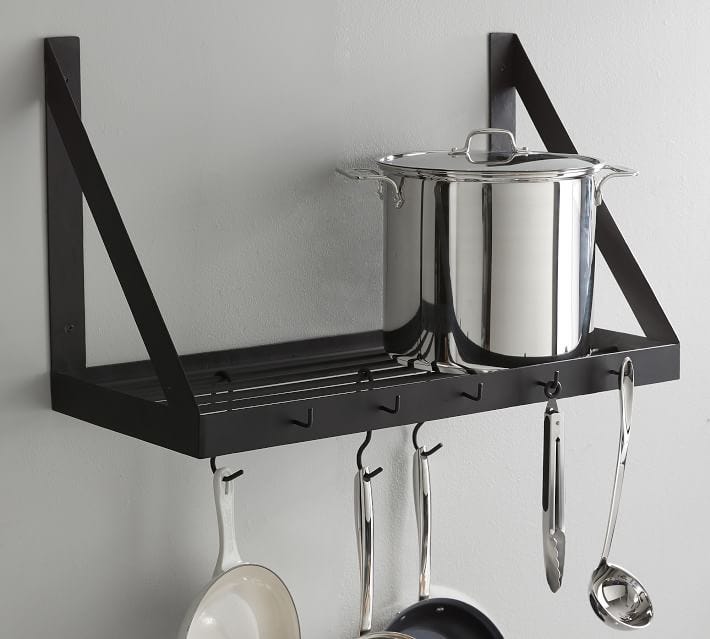Free labor shouldn’t be a prerequisite to upward mobility
NFL reporter Jane Slater sparked the latest unpaid internship debate and revealed an anti-racism blind spot among the media elite in the process.
I knew of Jane Slater before she became a Twitter trending topic yesterday. She’s an NFL reporter from a Dallas suburb about 15 minutes east of where I grew up and the same one my teenage self drove to a few times a month to visit my closest friend. Slater also covers my hometown Cowboys so I’m familiar with her work and stellar professional reputation. But these pleasantries took a backseat when the journalist went on defense after a series of insensitive tweets sparked controversy and aggravated one of the media industry’s nagging blind spots at once.
Let’s recap in case you missed it: Slater posted a call for broadcast journalism students to DM her about an unpaid internship setting up, recording and editing Zoom and Skype calls with top NFL draft prospects. Apparently, more than a few folks bristled at the fact that the position was unpaid, prompting Slater to let her followers know “she would have jumped” at the opportunity if she were still in college. In fact, while a student at the University of Texas at Austin, she had — not one, not two, but — three unpaid internships, double-majored and had a job. That’s not all: Slater then advised aspiring journalists that “your first few years feel unpaid” and theorized that those who fail to succeed in journalism “don’t understand grind.”
You can guess what happened next. Twitter detectives dug up an interview from 2015 in which he shared that her grandfather Ray Shockley — the late president of Wolf Brand Chili who helped subsidize her college living expenses — was the person she admired most. Critics argued that we could all work unpaid internships if we also had access to Slater’s generational wealth. “There’s nothing wrong with that!” Jamison Foser, a San Francisco-based political consultant and writer, tweeted. “But a lot of people don’t have a chili baron grandfather whose financial support enables them to work for free. Just something to consider” Even Rep. Alexandria Ocasio-Cortez added her two cents. Meanwhile, she doubled down with an extra-large side of white fragility: “To the people shaming me for my hardworking grandfather and parents who instilled a similar work ethic to achieve success, you are rotten.” Alrighty then.
Slater had her fair share of defenders who also extolled the virtues of “paying your dues” by way of unpaid labor. (It’s worth noting that most of the people taking up for her shared one thing in common and it was their whiteness.) The irony though is that the data shows it’s Black and brown folks who accept the most unpaid internships across competitive industries despite being the least socioeconomically equipped to do so. According to a 2019 analysis from the National Association of Colleges and Employers (NACE), white and Asian-American students or international students on F1 visas are more likely to be paid interns than unpaid interns or never interns; the inverse is true for African-American, Hispanic-American and multi-racial students. These data points are significant because, as other studies have demonstrated, students who graduate with paid internships are more likely to be employed in their chosen career field after graduation and be paid better than those who only had unpaid internships or none at all.
The elitism Slater displayed runs rampant in the media industry and locks out underrepresented groups from journalism. In an essay for Poynter, Omar Rashad wrote, “This only touches the tip of the iceberg when it comes to addressing the inaccessibility of a career in journalism. It doesn’t even get into the systemic barriers that make it incredibly hard for students from low-income backgrounds to pursue journalism, given they are more likely to take on part-time or even full-time minimum wage jobs to provide for their families, all on top of a full-time course load at their college.” And while I’m sure Slater worked her ass off in college, as I tweeted yesterday, the myth of meritocracy relies on the perception that all work is created equally. But there’s a difference between a creator who has to work to supply their basic essentials and someone who works because their parents want them to develop a work ethic. Rashad added: “This industry cannot claim to be the purveyor of diverse and compelling stories if it erases and ignores those eager to tell them, especially those who come from ‘nontraditional’ backgrounds.” (Slater ultimately walked back her earlier tweets. “I have listened, engaged [and] now have some food for thought,” she said before attaching screenshots from a lengthier mea culpa. “To be very clear, I don’t think you should ever work for free,” the statement read. “But I also believe if you can gain experience or find a mentor, you should.”)
I remember the first time I felt the sting of an unpaid internship that was beyond my reach. It was a few months after I returned to Dallas from New York to cover Fashion Week as a freelance reporter, a gig I found on Craigslist, lied my way into by pretending to already be based in New York and asked my Dad to finance via a meticulously crafted PowerPoint presentation. If my memory serves me, I reached out to the fashion news and features director at a magazine in hopes she’d mentor me as I planned what I hoped would be a rapid transition back to the city — to stay this time. She took a look at scans from the style column and community section I wrote and edited for my college’s student newspaper and a fashion website for college students and invited me to come in for an interview. She needed an intern ASAP and promised that, although the role would be unpaid, she’d teach me everything she knew. I told her I was based in Texas and asked if we could make the arrangement work but knew it was wishful thinking. She never emailed me back. I went on to launch my own scrappy digital magazine and upmarket blog to practice my craft. And I eventually broke into the industry and worked at my dream magazine. But it took me nearly a decade after the exchange with that editor to do so. And it had little to do with my lack of work ethic or skill and most to do with the very culture that Slater thinks is worth justifying with her privilege-enabled experience.
The problem with privilege is that it enables you to participate in the world as though individualism is a badge of honor instead of a distraction from the systemic and institutional barriers that pick winners and losers often before the game is ever played. One major reason I think Slater’s tweets struck a chord is that people of color are exhausted from being whitesplained the keys to success by those who will never have to walk an inch in our shoes or are devoid of the empathy required to imagine that their lived experience may not be everyone else’s. We’ve seen and heard enough stories in the past year about the marginalization of Black aspiring and working media professionals to last a lifetime. Yet the fact that the meritocracy myth persists anyway suggests people like Slater would rather lionize the fiction of personal responsibility than soul-search for answers to why the entry levels of the top industries are still so inaccessible to most people. It’s easy to donate to BLM activists, swap your profile pic for Black squares or disparage the MAGA movement. But when it comes to putting the politics of anti-racism to work, that legendary “grind” that Slater and her colleagues speak of is nowhere to be found.
In The Know
CULTURE
Sarah Cooper, the comedian who captured our hearts last year by lip-syncing statements made by Donald T****, received a pilot order from CBS for an as-yet untitled workplace comedy. The series is based on her 2018 book, How to Be Successful Without Hurting Men’s Feelings, and will follow “three women at different stages in their careers at a male-dominated company” as they “help each other navigate modern gender politics in their professional and personal lives.”
CORONAVIRUS
Merck & Co. will help produce Johnson & Johnson’s recently approved single-dose vaccine in an effort to expand supply more quickly. J&J faced unexpected production issues but is on pace to deliver 100 million doses by the end of June.
41 percent of voters are unwilling to get the vaccine. According to a new poll, 66 percent said they were concerned about side effects, while another 33 percent said they did not believe it was effective. Twenty-seven percent said they were not concerned about the virus, 23 percent said it should go to more at-risk individuals and 17 percent said they had health concerns.
Dr. Anthony Fauci said the US won’t delay giving second coronavirus doses, a strategy countries like the UK have adopted to accelerate the rollout of first doses. Fauci warned that leaving people with less protection could encourage new variants of the virus to develop.
POLITICS
The Biden Administration is expected to turn its attention to infrastructure once the president signs his pandemic rescue plan into law. The idea of strengthening our country’s highways, bridges and broadband networks has popular support but Congress is likely to be divided on the details.
Some Democratic Senators — like Ron Wyden from Oregon, Bernie Sanders of Vermont and Ohio’s Sherrod Brown — are rallying around the idea of recurring direct payments. Their proposal doesn’t specify how big the checks should be or the eligibility requirements for direct payments that would recur as many times as deemed necessary.
Senator Elizabeth Warren introduced the Ultra-Millionaire Tax Act that she says would level the playing field and close the racial wealth gap. The proposal would place a two-percent annual tax on households and trusts between $50 million and $1 billion and a one-percent annual surtax on households and trusts over $1 billion.
BUSINESS
Zoom reported revenue growth of 369 percent during the final quarter of 2020. The videoconferencing app generated $378 million in cash and finished January with $4.2 billion in cash on hand, which could be used for mergers and acquisitions.
TECH
Clue, a period-tracking app, received clearance from the FDA to launch a digital birth control function that uses statistical modeling to track users’ menstrual cycles and help them understand their fertility odds. The app declined to list an exact price or launch date but noted that the function would be a “premium” feature for its 13 million users.
Twitter introduced a strike system that can lead to permanent account suspension. Users will get five strikes and be notified if their tweet has resulted in a strike; the level of punishment will range from inaction to various account lockouts and total bans.
Verbatim
“I look forward to the future and the moment when I get bombarded with kisses and licks (and maybe even an excitement pee?) from Asia, Koji, and Gustav.” —Ryan Fischer, Lady Gaga’s dog walker who was shot once in the chest last week by unknown assailants who stole two of the pop star’s dogs, shares what he’s looking forward to after his recovery.
Read All About It
Stefan Nicola with Carolynn Look and Jeannette Neumann at Bloomberg on the four-day workweek:
Yet as the pandemic has slowed growth and increased inequality, there’s a new push to reengineer workplaces. Almost two-thirds of businesses with a four-day week report improved productivity, according to a study from the University of Reading. A group led by former U.K. Shadow Chancellor John McDonnell wrote a letter to leaders including Joe Biden, Boris Johnson, and Angela Merkel urging them to adopt a four-day week to save jobs, rethink working patterns, and reduce energy consumption. In August, Germany’s 2.3-million-member IG Metall union proposed a shorter workweek in response to the health crisis and seismic changes in the auto industry, which will need fewer manufacturing hands as it shifts to electric vehicles. French carmaker Renault SA is giving about 13,000 staff Fridays off until mid-August while it seeks to cut costs as orders have slumped. (Workers will be paid the same, but only because their salaries are plumped up with state unemployment benefits.)
Robin Wright at The New Yorker on Joe Biden’s broken promise to defend human rights and Jamal Khashoggi:
In the end, Biden personally decided that he did not want to nuke ties with a ruler who is still only in his mid-thirties and could lead the oil-rich kingdom for the next three to four decades, U.S. officials said. Washington, they added defensively, has rarely sanctioned a head of state: not autocrats like Russia’s Vladimir Putin, who was accused of ordering the use of chemical weapons in an assassination plot against Alexei Navalny, his main political challenger; nor Syria’s Bashar al-Assad, who is blamed for the death of up to half a million people during the country’s decade-long civil war; nor North Korea’s Kim Jong Un, who rules the most repressive regime on earth and reportedly ordered the murder of a half-brother and an uncle. What no U.S. official is willing to add is the economic subtext—that Saudi Arabia is the world’s largest purchaser of American weaponry. Biden does not want to endanger—“rupture” was the word U.S. officials kept using in interviews with me and others—his ties with M.B.S.
Megan Garber at The Atlantic on the breaking point of American cynicism:
Lies are not semantic. Lies can lead to violence—in some sense, they are violence. They are as destabilizing to the social environment as guns can be to the physical: When someone is armed with a willingness to deceive, nobody else has a chance. And cynicism, that alleged defense against duplicity, can have the upside-down effect of making the cynic particularly vulnerable to manipulation. One of the insights of Merchants of Doubt, Erik Conway and Naomi Oreskes’s scathing investigation into the American tobacco industry’s lies about its products, is that the deceptions were successful in part because they turned cynicism into a strategy. Faced with a deluge of studies that made the dangers of smoking clear, tobacco firms funded their own—junk research meant not to refute the science, but to muddle it. The bad-faith findings made Americans less able to see the truth clearly. They manufactured doubt the way Philip Morris churned out Marlboro Lights. They took reality and gave it plausible deniability.
Chris Smith at Vanity Fair on New York Governor Andrew Cuomo:
Cuomo’s brand has always been toughness, using muscle and manipulation to bend government to his will. His justification—and to many voters, his appeal—has been that his aggression and ruthlessness were necessary to deliver for the public. Maybe he was a bully, but it was for righteous causes: better bridges and airports, lower taxes, tougher gun laws. And Cuomo has never been accused of being corrupt in the obvious, conventional way—using his position to line his pockets. He wanted power so he could use it on behalf of the people of the great state of New York, who would otherwise be at the mercy of self-interested Albany insiders. The notion that complaints about Cuomo’s behavior were all from political enemies, and were part of the inside game, has protected him for a long time. Sexually harassing female subordinates, however, is nothing but selfish. Cuomo can make no claim to it serving the greater good.
Mary H. K. Choi at GQ on her marriage:
Shoulder to shoulder with my husband, in lockstep, I realized something. That day by the water, at the end of the summer, he said he resented that I had to see my parents—when it might be years before we could safely travel overseas to see his. And that he would endure. Yet his sacrifice, his prudence, could be wiped out by our seeing mine. I understood that miserly calculus well. The pettiness, the scarcity, the fear. I love him all the more for it. It's how I can reach for him in a blind, frenzied hunger in the pitch black of our bedroom, stone-cold sober, on our mid-priced mattress, tearing off last year's Uniqlo Heat Tech because I know for a fact he isn't better than me. He is other than me but not better than me, and that's the best thing about family.
Stella Bugbee at The Cut on the rise of wearable New York pride:
A year into the pandemic, with high-fashion trends nonexistent, everywhere I look people are cloaking themselves in NYC merch — from the average citizen to the hipsters of Bed-Stuy. And not just the classic I❤️NY tees or Knicks jerseys but hats from Con Ed or their local hardware store. Unable to travel but spared the herds of sidewalk-clogging tourists, New Yorkers have been supporting their neighborhood joints, snapping up polity-branded souvenirs as if we were flyover kids on a shopping spree in a Times Square gift shop. Wearing the “Yankee fitted,” as the nonadjustable cap is known, has long been a way for people to declare unironically, “I am on Team NYC.” Repping the city by repping its establishments — forestalling their bankruptcies one T-shirt purchase at a time — has become a big part of street style.
Michael’s Pick
Blacksmith Kitchen Shelf and Pot Holder ($159): I’ve got my eye on this iron shelf and pot holder to house some of my go-to cooking utensils and un-cramp the style of our main kitchen counter.






